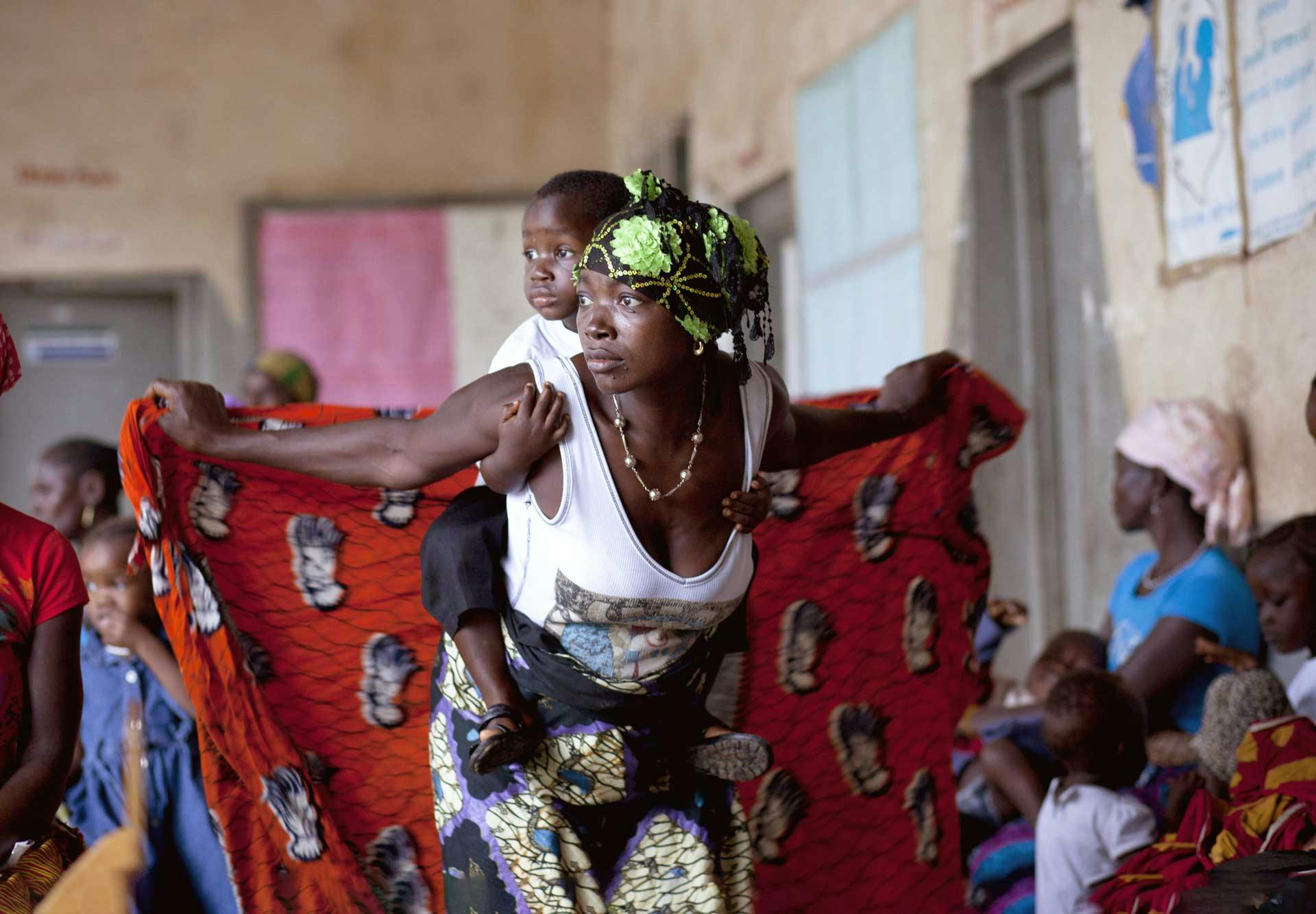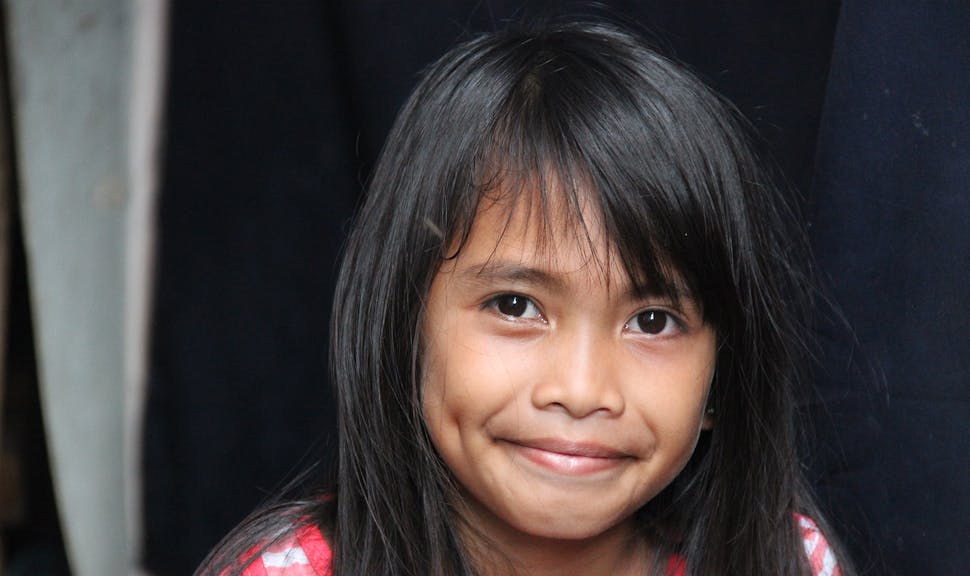
June 12, 2019
The key to improving women’s health in developing countries
Gender disparities have an impact on nearly every aspect of women’s lives, including health. On top of that, nowhere are these disparities more pronounced than in developing countries. While improving women’s health is a challenge everywhere around the world, it is a matter of vital importance for women in developing countries. To respond to this urgent issue, research suggest that one tool can have an immense impact in this area: empowerment.
6 minutes
Women’s health: a crucial issue in developing countries
From difficulty in accessing reliable diagnoses or appropriate care, to a lack of proper equipment or medication, the problems facing healthcare in the developing world are many. Moreover, they have more severe consequences for women in emerging countries, for a variety of reasons: lower income than men, complex family responsibilities, dependence on another family member or a lack of access to education. In short, women in developing countries often suffer from limited control over their own lives.
For all these reasons, women in developing nations often lack basic health care and face life-threatening health issues: maternal mortality, female genital cutting, child marriage, human immunodeficiency virus (HIV)/AIDS, and cervical cancer are a few of the issues that plague women in developing nations.
As Dr. Aduragbemi Banke-Thomas, an AXA Grantee at the LSE Health research center in London, explains: Globally, over 300,000 women still lose their lives annually due to problems such as haemorrhage, hypertension, obstructed labour, infection and complications of unsafe abortion. For lack or insufficiency of access to medical assistance, almost all these deaths (99%) occur in low-and middle-income countries.
Limited resources and education
While poverty affects both men and women, gender discrimination means that women often have far fewer resources to cope with the specific health issues they face, which leaves them further disempowered. In fact, the United Nations says that women are often the last to eat, while they must routinely attend to time-consuming, unpaid domestic tasks.
A further aggravating factor is that women in developing countries often have little access to education and employment. This leads directly to higher rates of illiteracy and child marriage, as well as an elevated risk of morbidity and mortality. For this reason, women in developing countries are often trapped in cycles of dependence, which leaves them powerless to take their health and well-being into their own hands. This situation affects not just the women themselves, but also their children, their families, and their communities.
Improving outcomes through empowerment
This all adds up to a situation in which women in developing countries do not have the resources they need to control their own destinies. For example, notably due to early marriage, young girls in developing countries experience reduced spatial mobility: in South Africa, girls see their spatial access
shrink by a third when they reach puberty, just as boys see their spatial access double in size at the same time. Not only does this increase girls’ dependence on their husbands and families, it also has direct consequences on social and professional opportunities: in low-income countries, 79% of men have access to the job market, compared with just 47% of women.
Increasing the autonomy of young women in these countries will thus allow them to offer a greater contribution to the local economy. Health and poverty researcher Thoai Ngo emphasizes the importance of empowerment, which will not only enable these women to be more productive, but also to increase their autonomy and influence within their families. To do this, Ngo urges massive investments in health and education for girls in developing nations, as well as greater access to contraception so women can control the size and structure of their families.
Providing access to quality obstetric care in Sub-Saharan Africa
To improve women’s agency and counter the specific health risks facing women in developing nations, AXA supports an academic research program at the London School of Economics and Political Science that aims to provide quality obstetric care in Sub-Saharan Africa. Emergency obstetric care provided by a skilled expert at the right time can reduce pregnancy-related deaths by 15-50%, while reducing stillbirths by 45-75%. As the project leader Dr. Aduragbemi Banke-Thomas explains: This is why it is important to work on ensuring that women understand the need for this care, can travel to facilities that provide such care in good time and receive quality care upon arrival.
To ensure that women in Sub-Saharan Africa can access this care, the program takes concrete steps like informing communities of the value of facility-based obstetric care, reducing financial barriers to care access, scaling up travel options for women no matter where they live, training health care providers to deliver quality care and providing the necessary equipment for skilled birth attendants to perform at an optimal level.
For example, through his research, Dr. Aduragbemi Banke-Thomas aims to study the actual travel experience of women from their residence to obstetric facilities, in order to account for all factors that come into play. This will provide a more realistic understanding of women’s actual itineraries in order to optimize their access to obstetric facilities, thus enabling these women to make the healthiest choices during pregnancy.
Specific challenges facing immigrant populations
Health challenges do not apply only to women who stay in their home countries. As Dr. Hibbah Osei-Kwasi, an AXA grantee and post-doctoral researcher at the University of Sheffield, states: Promoting healthy diets in a global context requires a detailed understanding of migration
. She explains that migrant women who move from low to high-income countries experience higher levels of diet related non-communicable diseases including type II diabetes and hypertension than host populations
. In addition, they also face higher food insecurity and discrimination, which can aggravate health inequalities.
Dr. Osei-Kwasi’s research on the Ghanaian diet maintained by migrant women living in the United Kingdom provides an excellent case in point. Indeed, even though they rarely adopt unhealthy Western diets, this community exhibits an abnormally high prevalence of obesity and associated diseases. In her work, Dr. Osei-Kwasi asks a crucial question: There is the assumption that traditional diets of migrants are healthy and that they become unhealthy when migrants change their diets to more ‘westernized’ ones. But is it really the case for all migrants?
Healthy culinary practices to curb obesity in Ghanaian women
Dr. Osei-Kwasi aims to answer that question by investigating what goes on in the kitchens of Ghanaian women residing both in the UK and Ghana, with the aim of empowering these women to make healthy culinary choices. As she explains, her research focuses on women because traditionally they are responsible for food provisioning and preparation in most Ghanaian homes
. The overall objective of the project is to lay the building blocks for the development of context-specific and culturally sensitive nutrition education to improve the traditional diets of African women, through channels such as electronic and social media.
In her current project, the nutritionist wants to go even further. Her new objective is to understand exactly why Ghanaians cook the way they do and how. I’m going to observe, not just ask. I’m going to go to people’s home, look at them cook, see which ingredients they use, how much salt they put in, how much fat, oil, spice, what types, how long they cook it for… But that’s not all, I also want to understand why they cook the way they do. So, I’m going to ask how they perceive the Ghanaian traditional diet, why they think it’s healthy, and if they’re willing to adopt healthy cooking practices.
By mapping the culinary practices of Ghanaian’s households, Dr. Osei-Kwasi’s project sets out to deliver precious and unprecedented knowledge about several dietary causes behind the prevalence of excessive weight and obesity in this community. By focusing on the preparation methods, as well as willingness to adopt healthy cooking practices, the team will help develop tailored measures to reduce the onset of obesity and prevent micronutrient deficiencies.
Empowering women worldwide
Since gender disparities cause and exacerbate many of the health risks facing women in developing nations, programs focusing on empowerment show the greatest promise of improving conditions. As Thoai Ngo explains, too many well-meaning development actors regard girls as victims to be saved, rather than as the innovative, energetic game changers they are.
Expanding women’s agency means unlocking their potential to solve major problems in society, including those pertaining to their own health. By expanding access to care like Dr. Aduragbemi Banke-Thomas, or educating women about diet and health like Dr. Hibbah Osei-Kwasi, initiatives that enable women to take control of their own lives can have a transformative effect on women and their role in society.



